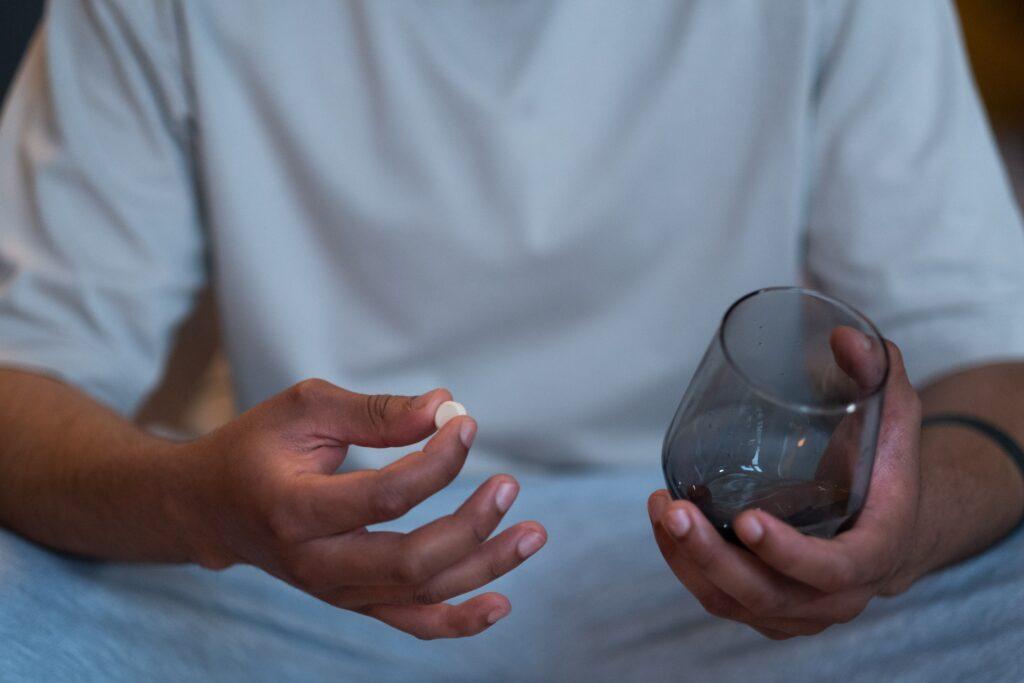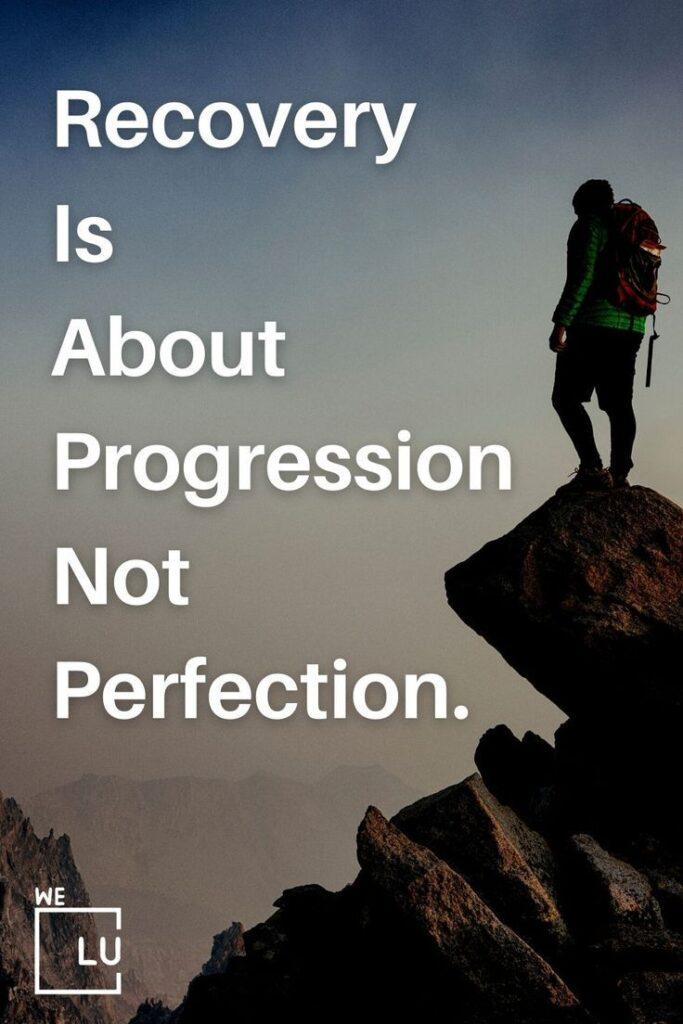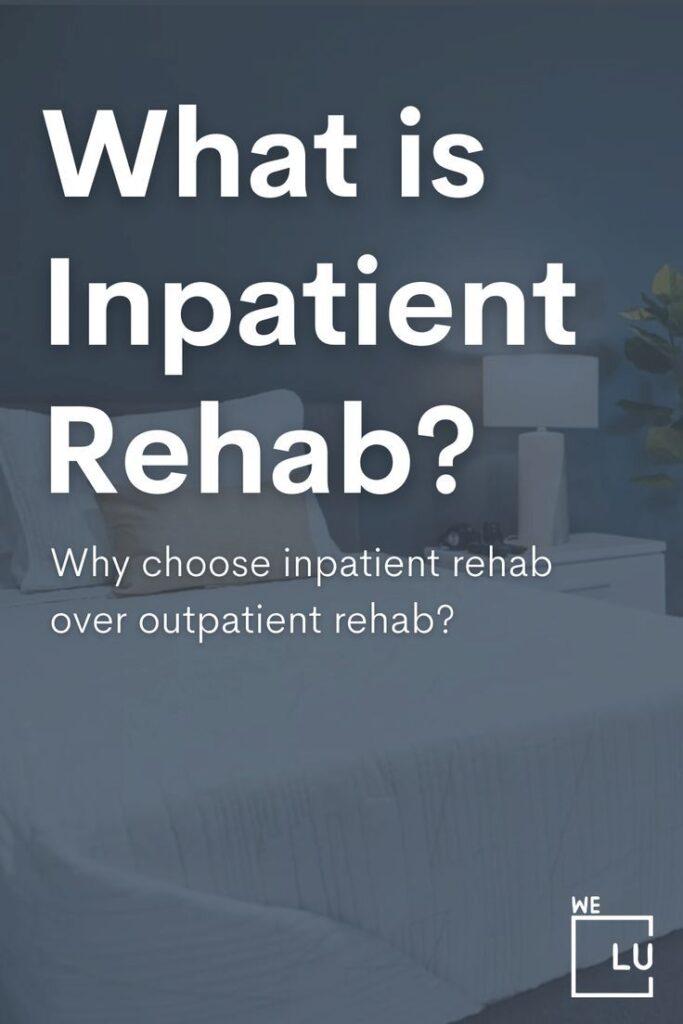What Is A Cyclobenzaprine High?
Cyclobenzaprine (Flexeril) is a prescription muscle relaxant medication that relieves muscle spasms and associated pain. It is not intended or approved for recreational use, and it is important to use any medication only as directed by a healthcare professional.
Taking cyclobenzaprine in higher doses than prescribed or using it for non-medical purposes can lead to a range of effects, including a soothing sensation, drowsiness, and relaxation of the muscles. Some people may describe this as a “cyclobenzaprine high.”
Misusing cyclobenzaprine or any medication can be dangerous and potentially harmful. Cyclobenzaprine has several side effects, including dizziness, drowsiness, dry mouth, blurred vision, and impaired coordination. Misusing the drug by taking it excessively or combining it with other substances can increase the risk of adverse effects and overdose.
Suppose you have been prescribed cyclobenzaprine or any other medication. In that case, it is crucial to use it as directed by your healthcare provider and to discuss any concerns or questions with them. They can provide appropriate guidance based on your specific medical needs.
How Does A Flexeril High Feel Like?
I apologize for the confusion, but it is important to emphasize that using cyclobenzaprine (Flexeril) to achieve a “high” is not safe or recommended. Cyclobenzaprine is a prescription medication intended to treat muscle spasms and related conditions. Taking cyclobenzaprine in higher doses than prescribed or using it for recreational purposes can have serious consequences.
That being said, if someone were to misuse cyclobenzaprine and experience its effects beyond the therapeutic range, it could potentially lead to a range of sensations, including sedation, drowsiness, and relaxation of the muscles. However, it is crucial to understand that these effects can vary widely between individuals, and there is a risk of experiencing unpleasant or dangerous side effects.
Misusing cyclobenzaprine can have serious consequences, including overdose, resulting in symptoms such as severe drowsiness, confusion, hallucinations, rapid heartbeat, and even seizures. It is essential to use medications only as directed by a healthcare professional and to seek their guidance if you have any concerns or questions about your prescribed medication.
If you or someone you know is struggling with substance abuse or has concerns about drug misuse, I encourage you to seek help from a medical professional or a substance abuse counselor who can provide the necessary support and guidance.

Skip To:
Learn More:
Get Help. Get Better. Get Your Life Back.
Searching for Accredited Drug and Alcohol Rehab Centers Near You?
Even if you have failed previously and relapsed, or are in the middle of a difficult crisis, we stand ready to support you. Our trusted behavioral health specialists will not give up on you. When you feel ready or just want someone to speak to about therapy alternatives to change your life call us. Even if we cannot assist you, we will lead you to wherever you can get support. There is no obligation. Call our hotline today.
(844) 597-1011Popular Cyclobenzaprine High FAQs
-
Can Cyclobenzaprine Get You High?
No, cyclobenzaprine (commonly known as Flexeril) is not intended to get you high. It is a prescription muscle relaxant for treating muscle spasms and associated pain. Using cyclobenzaprine to achieve a recreational “high” is unsafe or recommended.
-
Is 10 Mg Of Flexeril A High Dose?
The recommended starting dose of Flexeril (cyclobenzaprine) is 5 mg to 10 mg, taken thrice daily. It is important to follow the dosage prescribed by your healthcare provider. Taking a higher dose without medical guidance can increase the risk of side effects and potential harm. It is essential to consult with your healthcare provider to determine the appropriate dosage for your specific condition.
-
Does Flexeril Get You High?
Flexeril (cyclobenzaprine) is not intended to produce a “high” or euphoric effect. It is a muscle relaxant prescribed to relieve muscle spasms and associated pain. While some people may experience sedation, drowsiness, and muscle relaxation when taking Flexeril within the prescribed dosage range, these effects are not the same as achieving a recreational high. Misusing Flexeril by taking higher doses than prescribed or using it for non-medical purposes can lead to serious health risks and adverse effects. It is important to use medications only as directed by a healthcare professional.
Cyclobenzaprine Addiction Facts
Cyclobenzaprine Addiction Overview
Flexeril (cyclobenzaprine) is a muscle relaxant commonly prescribed to alleviate muscle spasms and discomfort associated with musculoskeletal conditions. While Flexeril is not considered highly addictive, it can still lead to dependence and abuse if not used as directed.
Prolonged or misused Flexeril can result in withdrawal symptoms and other adverse effects. Individuals need to follow their healthcare provider’s instructions, use the medication as prescribed, and communicate any concerns or changes in symptoms promptly. Consulting a healthcare professional is crucial for proper guidance and monitoring when using Flexeril to minimize the risk of addiction.
Cyclobenzaprine Addiction Signs
- Increasing Tolerance: Individuals may develop a tolerance to Flexeril over time, requiring higher doses to achieve the desired effects. This can be an indication of addiction.
- Continued Use Despite Negative Consequences: Despite experiencing adverse effects on physical health, relationships, work, or other areas of life, individuals may continue to use Flexeril compulsively.
- Preoccupation with Flexeril: An individual addicted to Flexeril may spend significant time obtaining the drug, using it, or thinking about it. This preoccupation can interfere with daily responsibilities and activities.
- Loss of Control: People with a Flexeril addiction often find controlling or limiting their drug use challenging. They may have unsuccessful attempts to cut down or quit using Flexeril.
- Withdrawal Symptoms: When attempting to stop or reduce the use of Flexeril, individuals may experience withdrawal symptoms such as muscle aches, restlessness, irritability, anxiety, insomnia, sweating, and nausea.
- Neglecting Other Activities: As Flexeril becomes the primary focus, individuals may neglect activities they previously enjoyed, or that were important to them, such as hobbies, socializing, or work commitments.
Cyclobenzaprine Addiction Treatment
Flexeril addiction treatment typically involves a comprehensive approach that addresses both addiction’s physical and psychological aspects. Here are some common treatment options:
- Medical Detoxification: If an individual has developed a dependence on Flexeril, a medically supervised detoxification process may be necessary to manage withdrawal symptoms safely. Medical professionals can gradually taper the dosage during this phase to minimize discomfort and ensure a safe transition.
- Behavioral Therapy: Various forms of therapy, such as cognitive-behavioral therapy (CBT), can be beneficial in treating Flexeril addiction. These therapies help individuals identify and modify unhealthy thoughts, behaviors, and triggers associated with drug use and develop effective coping strategies.
- Support Groups: Participating in support groups, such as Narcotics Anonymous (NA), can provide individuals with a sense of community, understanding, and encouragement. Sharing experiences and learning from others who have overcome addiction can be instrumental in the recovery process.
- Individual Counseling: Individual counseling sessions with a qualified therapist or counselor can provide a safe and confidential space to explore underlying issues that may have contributed to drug abuse. These sessions can help individuals develop healthier coping mechanisms and gain insights into their addiction.
- Dual Diagnosis Treatment: If a co-occurring mental health disorder is present alongside Flexeril addiction, integrated treatment that addresses both conditions simultaneously is crucial. This approach ensures that individuals receive comprehensive care for their physical and psychological well-being.
- Medication-Assisted Treatment (MAT): In some cases, medications may be used as part of a comprehensive treatment plan to help manage cravings and withdrawal symptoms. However, there are no specific medications approved for treating Flexeril addiction, so the use of medications would be based on individual circumstances and the presence of other substances.
Cyclobenzaprine Addiction Statistics
Understanding the scope and impact of Flexeril (cyclobenzaprine) addiction is essential for addressing this issue. By examining Flexeril addiction statistics, we can gain insights into the prevalence, trends, and consequences associated with the misuse and abuse of this medication. These statistics shed light on the challenges faced by individuals and communities affected by Flexeril addiction, highlighting the need for awareness, prevention, and effective treatment strategies.
0.2%
Approximately 0.2% of individuals aged 12 and older in the United States reported misusing cyclobenzaprine (the generic name for Flexeril) in 2018.
Source: SAMHSA
2003 to 2015
JAMA Network Open found that the misuse of muscle relaxants, including cyclobenzaprine, increased significantly during this period.
Source: JAMA Network Open
79.1%
From 2004 to 2015, cyclobenzaprine-related emergency department visits increased by 79.1%.
Source: Journal of Addiction Medicine

Get Your Life Back
Find Hope & Recovery. Get Safe Comfortable Detox, Addiction Rehab & Dual Diagnosis High-Quality Care.
Hotline(844) 597-1011
What Is A Cyclobenzaprine High Dosage?
The recommended cyclobenzaprine (Flexeril) dosage typically ranges from 5 to 10 mg, taken thrice daily. It is essential to follow the dosage prescribed by your healthcare provider for your specific condition.
However, it is crucial to note that using cyclobenzaprine to achieve a “high” is unsafe or recommended. Misusing cyclobenzaprine by taking higher doses than prescribed or using it for recreational purposes can lead to serious health risks and adverse effects. No specific “high dosage” for cyclobenzaprine exists because it is not intended for recreational use.
Misuse of cyclobenzaprine can result in excessive sedation, drowsiness, and other side effects such as blurred vision, dry mouth, and impaired coordination. Taking excessively high doses of cyclobenzaprine can increase the risk of experiencing severe side effects and overdose symptoms.
It is important to use medications only as directed by a healthcare professional and to seek their guidance if you have any concerns or questions about your prescribed medication. If you or someone you know is struggling with substance abuse or has concerns about drug misuse, you should seek help from a medical professional or a substance abuse counselor. They can provide the necessary support and guidance.
First-class Facilities & Amenities
World-class High-Quality Addiction & Mental Health Rehabilitation Treatment
Rehab Centers TourRenowned Addiction Centers. Serene Private Facilities. Inpatient rehab programs vary.
Addiction Helpline(844) 597-1011Proven recovery success experience, backed by a Team w/ History of:
15+
Years of Unified Experience
100s
5-Star Reviews Across Our Centers
10K
Recovery Success Stories Across Our Network
- Low Patient to Therapist Ratio
- Onsite Medical Detox Center
- Comprehensive Dual-Diagnosis Treatment
- Complimentary Family & Alumni Programs
- Coaching, Recovery & Personal Development Events
Flexeril And Gabapentin High
Combining Flexeril (cyclobenzaprine) and gabapentin to achieve a “high” can be dangerous and should be avoided. Both medications have specific medical uses and should only be taken as prescribed by a healthcare professional.
Flexeril is a muscle relaxant that blocks pain sensations and relieves muscle spasms. It can cause sedation, drowsiness, and relaxation of the muscles when taken as directed. Gabapentin, on the other hand, is an anticonvulsant medication primarily used to treat seizures and nerve pain. It can have calming and sedative effects.
When misused or combined, the effects of Flexeril and gabapentin can be intensified, potentially leading to a range of dangerous consequences. These may include excessive sedation, extreme drowsiness, impaired coordination, confusion, difficulty breathing, and increased risk of overdose.
Combining these medications can also increase the risk of respiratory depression, particularly when taken in higher doses or with other substances such as opioids or alcohol. Respiratory depression can be life-threatening and requires immediate medical attention.
It is crucial to understand that misusing or combining medications for recreational purposes can have serious health risks and may lead to addiction, overdose, or other complications. If you have concerns about the appropriate use of Flexeril, gabapentin, or any other medication, it is essential to consult with a healthcare professional for guidance and support.

World-class, Accredited, 5-Star Reviewed, Effective Addiction & Mental Health Programs. Complete Behavioral Health Inpatient Rehab, Detox plus Co-occuring Disorders Therapy.
CALL(844) 597-1011End the Addiction Pain. End the Emotional Rollercoaster. Get Your Life Back. Start Drug, Alcohol & Dual Diagnosis Mental Health Treatment Now. Get Free No-obligation Guidance by Substance Abuse Specialists Who Understand Addiction & Mental Health Recovery & Know How to Help.
We Level Up Cyclobenzaprine High Dual Diagnosis Treatment
We Level Up is a highly respected rehabilitation facility that takes a comprehensive approach to help individuals struggling with addiction to Cyclobenzaprine and co-occurring mental health disorders. Recognizing the intricate connection between addiction and mental well-being, the treatment program at We Level Up integrates evidence-based therapies, expert medical care, and a holistic viewpoint to provide a well-rounded and effective approach to recovery.
At We Level Up, each person seeking help receives a personalized treatment plan tailored to address the specific challenges associated with Cyclobenzaprine addiction and any underlying mental health conditions they may be facing. The dedicated team of professionals at We Level Up understands that addressing addiction and mental health is crucial for lasting recovery and overall well-being.
The treatment approach at We Level Up includes a range of therapeutic modalities. Individual counseling allows individuals to explore the root causes of their addiction and work through any underlying emotional issues. Group therapy provides a supportive environment where individuals can connect with others going through similar experiences, share insights, and learn from each other’s journeys. Behavioral therapies help individuals develop healthy coping mechanisms and acquire new skills to manage cravings and triggers. Additionally, medication management may be utilized as part of a comprehensive treatment plan when appropriate.
We Level Up takes pride in creating a nurturing atmosphere where individuals feel safe, understood, and supported throughout their recovery journey. The compassionate and knowledgeable staff members are dedicated to fostering healing and growth, ensuring that each individual receives the attention and care they need.
By delivering comprehensive care that addresses addiction and mental health, We Level Up is a trusted option for individuals seeking specialized treatment for Cyclobenzaprine addiction and co-occurring mental health issues. The facility’s commitment to integrated care and its expertise in managing dual-diagnosis situations make them well-equipped to provide the necessary support and guidance for individuals on their path to recovery and a healthier, more fulfilling life.
Experience Transformative Recovery at We Level Up Treatment Centers.
See our authentic success stories. Get inspired. Get the help you deserve.
Start a New Life
Begin with a free call to an addiction & behavioral health treatment advisor. Learn more about our dual-diagnosis programs. The We Level Up Treatment Center Network delivers recovery programs that vary by each treatment facility. Call to learn more.
- Personalized Care
- Caring Accountable Staff
- World-class Amenities
- Licensed & Accredited
- Renowned w/ 100s 5-Star Reviews
We’ll Call You
Watch The Prescription Drug Abuse & Prescription Medication Addiction Recovery & Sobriety Story Informative Video
Video Script
“I wanted my life back. I was a shell of a person. I wanted to be trusted; I wanted relationships back that I lost, mainly my children and family. It started innocent enough, I got into a car accident, and then I got sucked into the whole, you know, medication issue with the pills. And before I knew it, I was in a cloud. I was sucked in by addiction, and with my mind, I kept thinking it was OK because a doctor was prescribing this for me, a doctor was giving me this, a doctor was giving me that.
So, I didn’t think I was doing anything wrong. Level Up supports my family and my relationships with my family, and they’ve helped me grow as a person. When I first started there, I was so intimidated and scared, you know? But, they’ve taught me, they’ve taught me how to come into my own. And then, you know, when I get the call from my twenty-one-year-old daughter in the middle of the day, to say ‘I love you, Mom.’ that’s amazing.”
Jen’s Addiction Recovery Testimonial.
Search We Level Up Cyclobenzaprine High Resources
Sources
- National Institute on Drug Abuse (NIDA) – Prescription Drug Misuse and Abuse: https://www.drugabuse.gov/publications/research-reports/misuse-prescription-drugs/overview
- Substance Abuse and Mental Health Services Administration (SAMHSA) – Prescription Drug Misuse and Abuse: https://www.samhsa.gov/
- U.S. Food and Drug Administration (FDA) – Drug Safety and Availability: Cyclobenzaprine Information: https://www.fda.gov/
- Centers for Disease Control and Prevention (CDC) – Prescription Opioid Overdose Data: https://www.cdc.gov/
- National Library of Medicine (NLM) – MedlinePlus: Cyclobenzaprine: https://medlineplus.gov/druginfo/meds/a682514.html
- National Institute on Drug Abuse (NIDA) – Principles of Drug Addiction Treatment: A Research-Based Guide: https://www.drugabuse.gov/publications/principles-drug-addiction-treatment-research-based-guide-third-edition
- National Institutes of Health (NIH) – National Institute on Drug Abuse (NIDA) – Treatment Approaches for Drug Addiction: https://www.drugabuse.gov/publications/drugfacts/treatment-approaches-drug-addiction
- SAMHSA – Find Treatment: https://www.samhsa.gov/find-treatment
- National Alliance on Mental Illness (NAMI) – Substance Use Disorders: https://www.nami.org/About-Mental-Illness/Common-with-Mental-Illness/Substance-Use-Disorders
- Office of National Drug Control Policy (ONDCP) – Prescription Drugs: https://www.whitehouse.gov/


